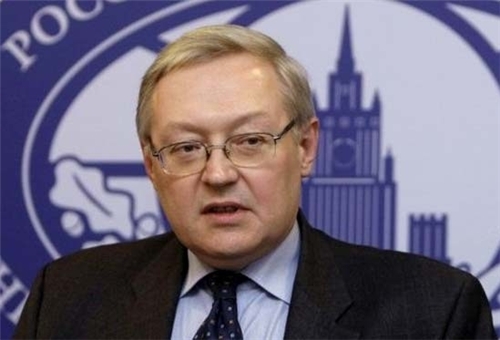 Russian Deputy Foreign Minister Sergey Ryabkov[/caption]
Russian Deputy Foreign Minister Sergey Ryabkov[/caption]The problem of Russian Foreign Minister Sergey Lavrovís arrival in Vienna has not been solved yet
VIENNA, November /TASS/. The consequences of disruption of Iranís negotiations with a group of six nations (five permanent members of the UN Security Council + Germany) may be complicated, Russian Deputy Foreign Minister Sergey Ryabkov told journalists on Thursday.
ďToday, we are having a rare opportunity. It is an extremely vital moment. Missing this chance would be a great mistake to be followed by fairly complicated consequences,Ē Ryabkov said adding that none of participants in talks between Iran and a group of six nations has mentioned the need to prolong the negotiations so far.
The talks are held in an exclusively tense atmosphere, according to the diplomat. ďTime is slipping away,Ē Ryabkov said.
He also said the problem of Russian Foreign Minister Sergey Lavrovís arrival in Vienna has not been solved yet.
ďIt is not clear over the ministersí participation. I have no exact information on plans of all ministers. The arrival of the US Secretary of State has been confirmed,Ē he said. ďThe problem of who will represent Russia on the completing stage [of the talks] has not been solved,Ē Ryabkov said. ďA decision will be made depending on what will happen here in the short run,Ē he said.
Ryabkov expressed hope that the negotiators would succeed in reaching agreement.
Speaking about a possibility of adopting a new intermediary agreement, Ryabkov said: ďAny intermediary agreement also requires coordination because the problems are the same, should it be a permanent or intermediary document, it is unclear how an intermediary agreement can be theoretically coordinated at the last moment.Ē
ďThis is the main concern, at least from our party. We call on everyone to lay aside secondary and peripheral arguments and think over what is necessary to do to take political decisions, which are a crying need,Ē he said.
By Itar Tass
The Iran Project is not responsible for the content of quoted articles.










